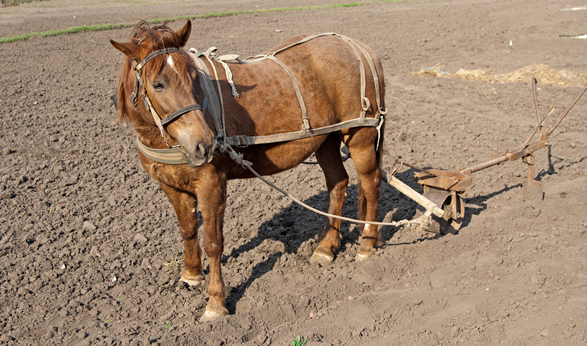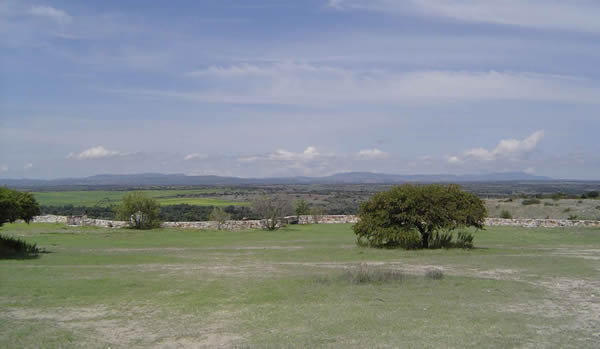Plant Service |
m | ||||||||
Posted to Subscribers on 1 December 2019 |
|||||||||
|
|
Dear Subscribers, Greetings! Hope everyone who celebrated Thanksgiving had a nice holiday. I would like to continue the discussion of freedom but perhaps another time. For the moment, I want to mention a few things about . This site was started after Lndscapingr Revolutionbecause the intent was different. It was prompted in great part by colony collapse disorder, the name given to the then mysterious death of bees. Today, I believe the cause of bee deaths is known; but with rampant obfuscation of truth, it is possible that not everyone believes what has been determined to be the primary cause. Thus, it might behoove us to go over some of the issues we are facing as a civilization. Instead of rambling on, I would like to highlight the main points, the first of which is that the invention of the plough was not actually something associated with modern times. It seems to have a Mesopotamian origin, and speaking for myself, I have become more and more concerned about anything we inherited from the alleged cradle of civilization since so much seems at odds with Nature.
I shall return to this after a few more introductory remarks, but the plough is essentially an alternative to a planting stick. This is what we see the Kogi Brothers (Colombia) and many others using when they plant. In Tibetan Buddhism, disturbance of the soil is prohibited, ostensibly because one might injure earthworms or other living creatures. As permaculturists have taught us, leaving the earth exposed to the sun is unwise. In most cases, this will result in burning of the soil and loss of the bacteria and fungi that contribute to the fertility of the soil. Ultimately, one has to plow deeper and deeper or supplement the soil with nutrients that are lacking. This leads to food with much less nutritional value and eventually to desertification, migration, illness, and perhaps massive starvation and/or death. Modern industrial agriculture has contributed mightily to this problem by concentrating on mechanization and mono crops, something one can almost never find in Nature. The question is how far out of balance are we? The answer is "very far out of balance"; moreover, the chemicals used by agroindustry appear to be toxic to bees and in high doses no doubt to many other creatures, including humans. Most of you know this already but there were some crashes on Seed Seva and last Friday I fixed them or replaced the videos and films that were deleted by youtube and/or censors. If you have not visited the site in a while, please do so!
Evolution of SeedSeva.com Going back quite far, more than 30 years, there was a preliminary attempt on my part to collect information on herbs that are used in cancer treatment. I tried to create networks with herb growers and marketers, with herb companies, and with herb researchers. The idea seemed good but the response was quite feeble. Recently cancerplants.com went through a massive upgrade and the present goals include promoting medicinal herb gardens that are affiliated with colleges, demonstration gardens, clinics and hospitals, and more. These were suggested for all regions of our Earth so the plants are listed more or less by their preferred habitats, i.e. climate, including temperature, moisture, latitude, and elevation. SSeed Seva is a bit different because one of the strategies of biodiversity is to encourage urban gardening since this has the potential of supporting food self-sufficiency as well as preventing extinction of plant species due to agroindustry practices. Before moving to the Pacific Northwest, I took a road trip starting in Santa Fe, New Mexico, and spending Thanksgiving with Gail in Lubbock, Texas, and then heading east to the Carolinas and then back through piles of snow, blizzards, and cold to Oregon. Recklessly, I ended up in Poulsbo, Washington, which was never the intent. Anyway, there was time to think, but what I saw when heading east was hundreds and hundreds of miles of railway cars with ADM on the sides. When in the so-called bread basket of America, it is surprisingly hard to find whole wheat bread in a restaurant, and I began to think of the patients I had seen and what they were eating. Once in Washington, I was hosted by a group of doctors, all Koreans, and one day my eyes went out the window and I asked the doctors what they saw. They saw a parking lot. I saw a couple of lonely plants, one of which is a cancer herb. They were fascinated, and we began working together until 9/11 when they were so discouraged by airport routines that they stopped visiting. In short, there has been no purpose in living here since 9/11. However, I braved the travel and was consulting in Europe and round trip came to have multiple meanings, including that while sharing what I have to share, I was also learning from others. One of the patients in Germany was a chocolate maker who also sold honey, and he told us about colony collapse disorder. We had no idea then just how serious the situation was and still is. Bees pollinate many of our food crops. Without pollinators, we would be eating cereals rather than fruits, vegetables, and nuts. Most people are a bit slow to embrace change, especially in very traditional areas such as gardening and farming as well as cooking and eating. We depend on what has worked for generations, but this is no longer the case because we have a global crisis. With the new videos that were added to Seed Seva, the issues are clarified, but my mission has also shifted a bit and I am posting more and more videos about medicinal uses of herbs. This is especially true for malaria and Lyme disease where I have been focused for some years. As an example of how my head works, I might start with plants that repel mosquitoes and often other insects. In general, these are also plants that are not attractive to bees, but there is considerable consensus about what repels mosquitoes. It either means there are multitudes of plagiarists or the authors actually have proof for their claims. I might be hypersensitive on this subject because the initial lists collected from "experts" did not hold up particularly well since I found, for instance, that bees love figwort, rhododendrons, and sedum whereas the hummingbirds went for some of the bright red flowers. In any event, keeping plants like basil in the bedroom at night may not be as protective as a mosquito net, but it surely makes a lot of sense. Next, one can make repellents with the essential oils of plants. These can be sprayed on clothing or used in diffusers or candles. Then, there are herbs to use when preventative measures were not taken so there are treatments for the vector-borne infections which can be parasitic, bacterial, or viral. So, the approach is broad and there are seeds, books, and videos on the site. This said, this is one of the sites I want to spin off in order to have more time, but it is a labor of love even though I see how the right person could use the site to promote better agricultural practices worldwide and make a living as a consultant. Farm Yesterday, I had a marathon telephone conversation with a realtor in Mexico. There is a property for sale that is extremely interesting, and we found ourselves talking the same language because there is an organic farm and some lots, but the terrain is mostly deserty and needs just the right TLC to come back to life. The property would make an incredible holistic community with demo gardens as well as food and herb production. I mentioned this before but only one hand went up. This brings up lots of issues for me. I check to see which posts are read. Typically, a very popular post will be read by about a third of the subscribers. Some posts may be read by half as many. By modern standards, these numbers are actually pretty high since people are deluged, but at a time in my life when I am intensely focused on my legacy, I am paying very close attention to what people read and what they skip. Gardening is both participatory and communal. By this, I mean one may have favorite plants or gardening methods, but even when there are differences, those differences are not as divisive as politics, and people can work together.
The recent post on Billionaires might have had the highest readership for 2019. There have been ones that were more popular, but not recently. This tells me that people are concerned about the economy and the underlying reasons for such incredible imbalance. The bulk of wealth in the last several decades has made the rich richer at the expense of the middle class, not to mention the poor. An agricultural revolution could reverse some of the imbalance! Ecosia Today, I am not going to rant and rave, but consistent with the commitment to greening the Earth, I would like to repeat my suggestion that people use Ecosia as their search engine. It works like other search engines and presumably in all browsers. I use FireFox most of the time with Ecosia as the search engine. Their servers run on renewable energy and your searches generate income for them. They do not use the income to pay high salaries to CEOs but rather to buy trees. In October, they spent almost a million euros on tree planting. Searches are encrypted and database information is not sold to third parties. The Internet is changing and alternatives to the abuses are being developed by people with social consciences. Try to support them: https://www.ecosia.org/. Like many today, I might be just a bit out of synch. So many people are banking or betting on 2020, but we still have a few more weeks before we make our resolutions for the new year. Speaking for myself, I am crossing my fingers that the news will be more positive and that humanity will be less fragmented by divisiveness and more focused on what will make the future great for everyone!
Ingrid
Copyright by Ingrid Naiman 2019
|
||||||||
Home || Contact Us |
|||||||||
No content on any of the pages of this web site may be reproduced without written permission of Ingrid Naiman and Seventh Ray Press, publisher of this site. |
|||||||||
|
|||||||||


